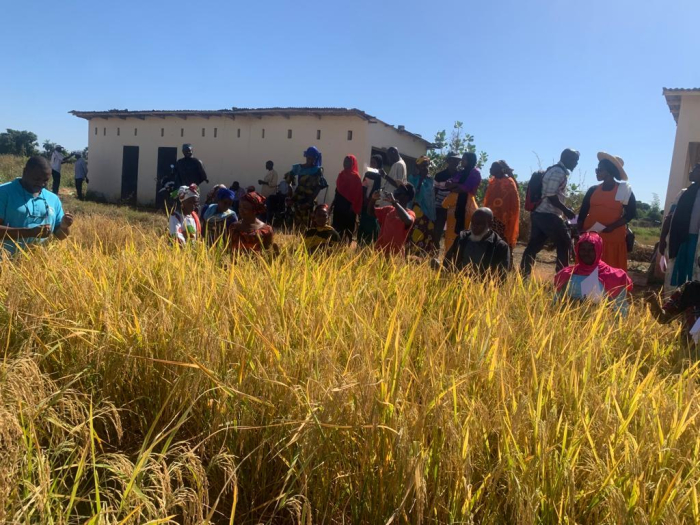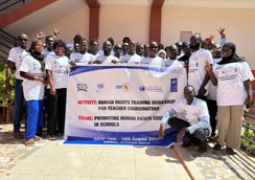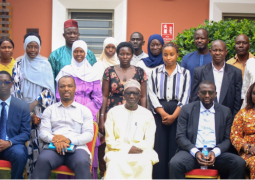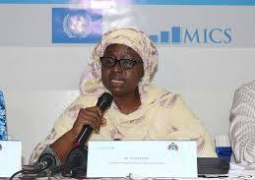
The field visit attracted NARI’s top researchers, director of Agriculture for CRR south, heads of the National Seed Secretariat (NSS) team in Sapu, rice farmers, among a host of others.
Earlier on, KAFACI supported NARI with about 160 varieties of different rice lines. Out of the 160 rice lines, farmers selected 17 varieties. Now, the research institute is working with farmers to further select the best varieties out of the 17.
The initiative was aimed at identifying rice varieties that are well suited to the Gambia’s climatic conditions such as farmers’ socio-economic characteristics, crop durability and environmental adaptation. The move would also enable farmers to choose their choice of varieties to enhance local rice production.
Speaking at the site in Sapu, Dr. Demba Jallow, director general of NARI, reminded that the newly introduced varieties are climate smart varieties that would significantly contribute to the enhancement of rice production in the Gambia.
“We have different varieties and some are prone to flood and drought. Now, each farmer will select a variety based on the condition of his or her field so that each will select variety that can do well in his or her field.” he said.
He, thus, thanked President Barrow for providing the much-needed support to the country’s agricultural sector.
“Based on my observation at the nation’s budget bilateral session, there is a renewed vision that would drive the country into food self-sufficiency.” he added.
Dr. Jallow urged the government to invest more in agriculture sector to ensure that food self-sufficiency is attained by 2030.
Dr. Jallow equally acknowledged the support of the Korean organisation to the research institute, something he said, is well ‘recognised and appreciated.’
For his part, Dr. Lamin Dibba, director of research at NARI, said the exercise is geared towards selecting rice lines that are well suited to the socio-economic characteristics of the farmers in the country to improve rice production.
“In the end of 2022, we will have about 160 rice lines from Korea. Early this year, we brought in some farmers and seventeen varieties were selected.
Dr. Dibba noted that now they have invited those farmers to re-evaluate the rice so as ascertain which varieties that they would like to drop.
“But if they do not want to drop any, then all will pass to the next stage which is on farm selection stage.” he explained.
He informed farmers that every farmer will be allowed to choose three varieties from the 17 varieties to cultivate on their farms in the upcoming cropping season for further selection.
NARI research director reminded that the institute deems it necessary to involve farmers directly in the selection process to ensure they select their choice of varieties.
“The main significance of this participatory varietal selection is for farmers to do the selection for themselves because we believe that one cannot reject his or her choice.” he said.
He spoke at length on the importance of involving farmers in seed varietal selection, saying as researchers they have their own criteria of selection such as the yield, durability, among others.
Dr. Dibba also advised farmers to take the participatory varietal selection seriously.
Dr. Lamin Sanneh, director of Crop Research, said the participatory varietal selection would enable NARI and farmers to select the best varieties to boost rice production.
“The joint selection session will help farmers to have preferable varieties and then we will share the seeds to the right authorities for multiplication and distributions.” he noted.
Samba Johm, director of Central River Region South Agricultural Directorate, expressed delight with the initiative undertaken by NARI.
Kawsu Fofana, a rice farmer from Wassu, commended NARI for involving farmers in the selection process as well as for bringing climate smart varieties to their doorsteps.





